Author Spotlight—Terri Wangard
Depth to writing is hard to come by sometimes. But Terri gives her readers a great series surrounding the 1940’s. Each book holds a historical and faith filled depth that connects the reader with the characters. I have loved her books but my personal favorite is No Neutral Ground. I felt a connect to Jennie and Rafe’s story. Terri has shared a post for today, and I am sharing a giveaway!
Guest Post from Terri
For the third book of my World War II series, I needed something to involve my main character with. At first I considered the train canteens, where volunteers laden with food met troop trains crisscrossing the country. That wouldn’t work though, because my navigator was heading overseas and I didn’t want a correspondence relationship. Then I discovered the Red Cross clubmobiles.
The American Red Cross operated canteens on the home front and clubs and clubmobiles overseas during World War II to provide soldiers and sailors with a cup of coffee, a doughnut, and a bit of friendly conversation that gave the men a familiar connection with home.
The Red Cross operated canteens in World War I when thousands of service personnel were traveling by train between their homes and camps and then to the ships that took them overseas. With the United States’ sudden entrance into World War II in 1941, the American Red Cross once again cared for troops on the move. Stateside, the Red Cross operated canteens near military installations, at train stations, ports of embarkation, and at military airfields. Canteen volunteers worked tirelessly securing donated and purchased supplies, preparing food and drinks, setting up facilities, and serving the troops.
Around the world, the Red Cross staffed permanent service clubs, traveling clubmobiles, and other recreational facilities. Service clubs provided refreshments, accommodations, and comfort and recreational activities wherever American troops were located overseas. In major cities, they offered meals, recreational activities, overnight accommodations, and barbershops and laundries. Some also provided sightseeing opportunities, touring museums, castles and cathedrals, and attending local theaters and movie houses.
Smaller clubs provided food in outlying areas near American military camps. The Red Cross also operated rest homes, often in stately manor houses in rural, tranquil locations overseas, for service personnel needing respite from the pressures of war.
To serve military sites in isolated areas, the Red Cross used clubmobiles in Great Britain in 1942 and later, the continent. Staffed by three American Red Cross women and a local driver in England, they visited several sites in a day, bringing refreshments, entertainment, and a touch of home to the troops in a foreign land. They used converted half-ton trucks and single-deck London buses, which featured kitchen equipment for making and serving doughnuts and coffee. Some carried phonographs and loudspeakers to provide music for the troops, and the women often danced with the servicemen. On the continent, the women had to drive and service their trucks.
Many American servicemen had never traveled far from home. At Red Cross clubs and clubmobiles in far-flung places around the globe, they received a connection to home and civilian life through friendly American women and familiar food. The Red Cross served a basic purpose of raising morale.
Carol Doucet of Soar Like Eagles was proud to be a Doughnut Girl.
She wants to do her part for the war, but struggles to maintain her ideals.
He joins the air force, hoping to find peace.
Carol becomes a Red Cross doughnut girl, serving GIs and boosting their morale. Believing wartime romances are doomed to disappointment, she attempts to avoid entanglements and transfers to France, away from Chet, the airman she’s falling for.
Chet’s father always belittled him. Now a well-regarded navigator, he longs to prove him wrong. After he’s ditched in the North Sea, parachuted into France, and been called before a review, his focus changes to staying alive, and winning the Red Cross girl he keeps crossing paths with.
Snippet from Soar Like Eagles
Chapter 1
Dennison, Ohio
Wednesday, December 29, 1943
Carol Doucet unscrewed the bolt and wrestled the meat grinder off the table’s edge. As she scraped the last of the ham sandwich spread out of the grinder, her friend Fran laid out slices of bread.
Fran blew a wisp of hair out of her eyes. “I still can’t believe you gave up your job.”
Carol pursed her lips. Why couldn’t Fran understand her desire? They’d been over this countless times since she’d received notice from the Red Cross to report to Washington.
“Giving up my job as a society reporter can hardly be considered a sacrifice.” She twirled her spoon in the air. “‘Olive Sullivan wore a crimson gown trimmed with antique lace to last night’s Rotary Christmas party.’” The spoon hit the table with a clank. “That is so frivolous. Who cares with, a war going on? I’m determined to do my part in the war effort, no matter how insignificant it seems.”
“What do you call this?” Fran waved her hand around the train station’s back room before grabbing the bowl of ham salad. She slopped the spread onto the slices of bread. “We’re volunteering our time, our food, and our thanks to the servicemen coming through Ohio. Carol, you don’t have to go overseas to serve coffee and doughnuts.”
Carol added top slices of bread, cut the sandwiches in half diagonally, and stacked them on a platter. “No, but I want to go. The war is having a profound effect on our generation and I want to be part of it, to see it. I want to help. I’m sure I’ll still have opportunities to write while overseas, maybe not as a reporter, but about my own experiences.”
“Wars are deadly, Carol. You could be killed.”
“The Red Cross won’t send us to the front. I’ll be safe.”
“Are you sure you’re not just running away from Sally and Mike?”
Fran’s quiet question stopped Carol’s hand from draping a tea towel over the sandwiches. “I can’t believe you would think that.”
Someone started a phonograph record, and the melancholy strains of “I’ll Be Home For Christmas” flooded the train station. Carol winced. A song about a soldier dreaming of being home with his loved ones for the holiday was not going to cheer the soldiers and sailors criss-crossing the country in training and preparation for shipping out to the war zones.
Another canteen volunteer poked her head in the kitchen door. “A train arrives in five minutes, ladies.”
Five minutes. Good. The song would be finished by then.
Carol hoisted the platter, careful not to topple the sandwiches, and headed out for the serving tables. If she was honest with herself, the opportunity to leave Sally behind was a joyful thought. She bit her lip. Someday, the events that had transpired last fall might be funny, but for now they were still too shocking to be believed.
After three dates, Mike had asked her to marry him before he reported for naval training. Carol didn’t regret saying no. He possessed a wild streak that scared her. Wartime marriages might be patriotic, sending off a sailor happy in the knowledge he had someone at home waiting for him. But what about when he came back to a stranger? How many of those quickie weddings would lead to lifelong love? Carol envisioned her parents laughing together as they washed the supper dishes, and sighed. She couldn’t imagine sharing intimate moments with Mike.
She’d been shocked when her good friend, Sally, waltzed in four days after the rejection and announced she would marry Mike. What was Sally thinking? They’d had five days together before Mike shipped out, and now Sally was pregnant. Carol shuddered every time she thought of it.
Fran followed her out with a heaping basket of apples. “I know you’re relieved not to be in Sally’s shoes, but I heard someone ask if you wish you hadn’t turned your back on a husband and baby. Busybodies can get annoying real fast, and the timing of your departure suggests a desire to avoid them.”
Long tables groaned with goodies set out for the troops in transit. Carol shifted a bowl of someone’s homemade divinity candy to make room for her sandwich platter. She accepted a rack of quart bottles of milk from a neighbor and began pouring the milk into glasses.
“A coincidence. You know I’ve wanted to join the Red Cross all year, but they have that minimum age requirement. Next month I’ll be twenty-five and eligible. As it is, I’m surprised I’m allowed to report for training before my birthday.”
The train whistled in with a squeal of brakes and a hiss of steam. A deluge of young soldiers and sailors raced into the station. Carol smiled. It was always the same. Some of the boys stepped right up while others stopped and stared at the abundance of food. She grabbed a knife to slice one of the cakes on her table.
“I hope you boys brought your appetites.” Mrs. Wills served as president of the Dorcas Society at the church Carol attended. “Help yourself. We’ve got all kinds of sandwiches, hard-boiled eggs, fruit, cookies, cakes, pies, coffee.” Her voice faded into the din of hundreds of voices.
A tall, quiet officer dressed in an airman’s uniform stepped up to the table and hesitantly selected a sandwich he placed in an empty box marked with a “K.” Carol scooped up a slice of cake and offered it. “How about some delicious, prize-winning cherry cake?”
He smiled and accepted the dessert. With his first bite, his eyes brightened. “Mmm, I can see why it’s a prize winner.”
Carol grinned. “My neighbor made it. Another slice for the road, or should I say, the rail?”
“Don’t mind if I do.” Holding out his box, he plucked an apple from the basket and added it to his meal. “This is really great, what you’re doing here. Do you use up your own ration stamps?”
“It’s our way of thanking you for what you’re doing. Communities from all around take turns providing food. Today it’s a ladies group from a church in Canton.” Carol removed an empty plate and helped Fran slide in a new tray of cupcakes.
The airman lingered nearby, sipping a glass of milk, watching the hubbub, and nodding in time to “Angels We Have Heard on High.” After pointing out to a trio of sailors which sandwiches were ham, chicken, or egg salad, Carol came back to him. “Are you traveling cross country?”
He grimaced. “No, thank goodness. That’s not a fancy Pullman car we’re riding in. I can’t tell you how good it feels to walk around.”
He snatched an egg from a platter being carried to the table, and his jacket gaped open. Carol spotted navigator wings adorning his shirt. The only planes she knew of that employed a navigator were the big four-engine bombers. She shivered as though someone had allowed the winter breeze to sweep in.
The airman didn’t seem to notice as he finished the slice of cake and wiped his fingers on a handkerchief. His eyebrows lifted. “What does the C stand for?”
“The C? Oh!” Carol touched the flowery initial embroidered on her blouse. “Carol. And you are?”
“Chet.”
“All aboard.” The stationmaster’s call echoed through the station.
Chet handed her his empty glass. “Sure doesn’t take long to get the train watered when there’s something worth getting off for.” He dipped his head. “It’s been nice talking to you, Carol.”
“Godspeed, Chet.” The farewell slid off her tongue as though she said it every day. She’d heard it explained in church as “May God prosper you.” As she watched the handsome brown-eyed airman stride outside, the expression seemed most appropriate.
The canteen emptied as the servicemen ran back to their train. A moment of silence reigned as the ladies caught their breath.
“Whee. I don’t know what they feed them in the military, but it must not be enough.” Fran materialized beside Carol. “We’ll be lucky if our food holds out until the next shift arrives.”
“I’ve heard they subsist on K rations or C rations, or some little box of canned stuff they have to eat cold. This is a smorgasbord in comparison.” Carol stared out the window as the train chugged away. Chet’s box must have held K rations at one time.
“Carol? Come on, we have to get ready for the next train.”
“Right.” She looked at the glass in her hand. “I’ll wash coffee cups and glasses this time.” She turned toward the kitchen, but Fran stood in her way.
“You want to wash dishes? What’s gotten into you?”
Carol leaned back against the table and grinned. “Did you see who I was talking to? Three dates with him and I might have to change my mind about saying no.” She straightened up with another shiver. “Seriously, I wouldn’t mind getting to know him, except he’s on a bomber crew. In Europe, they’re dropping faster than flies.”
Promise for Tomorrow Serries
Book 1

Book 2

Book 3
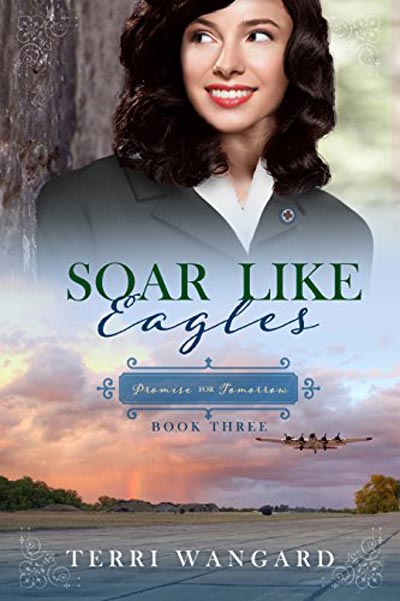

Professional Reader Affiliates



Affiliate Disclosure
I am grateful to be of service and bring you content free of charge. In order to do this, please note that when you click links and purchase items, in most (not all) cases I will receive a referral commission. Your support in purchasing through these links supplements the costs of keeping my website up and running, and is very much appreciated!




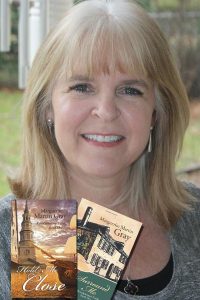






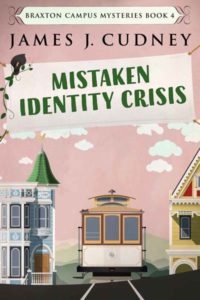
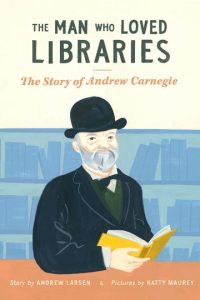












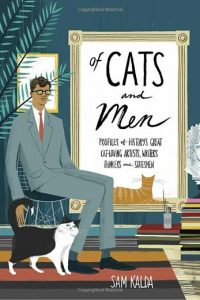

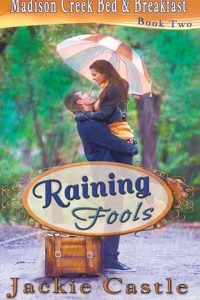
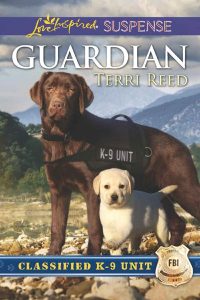







0 Comments